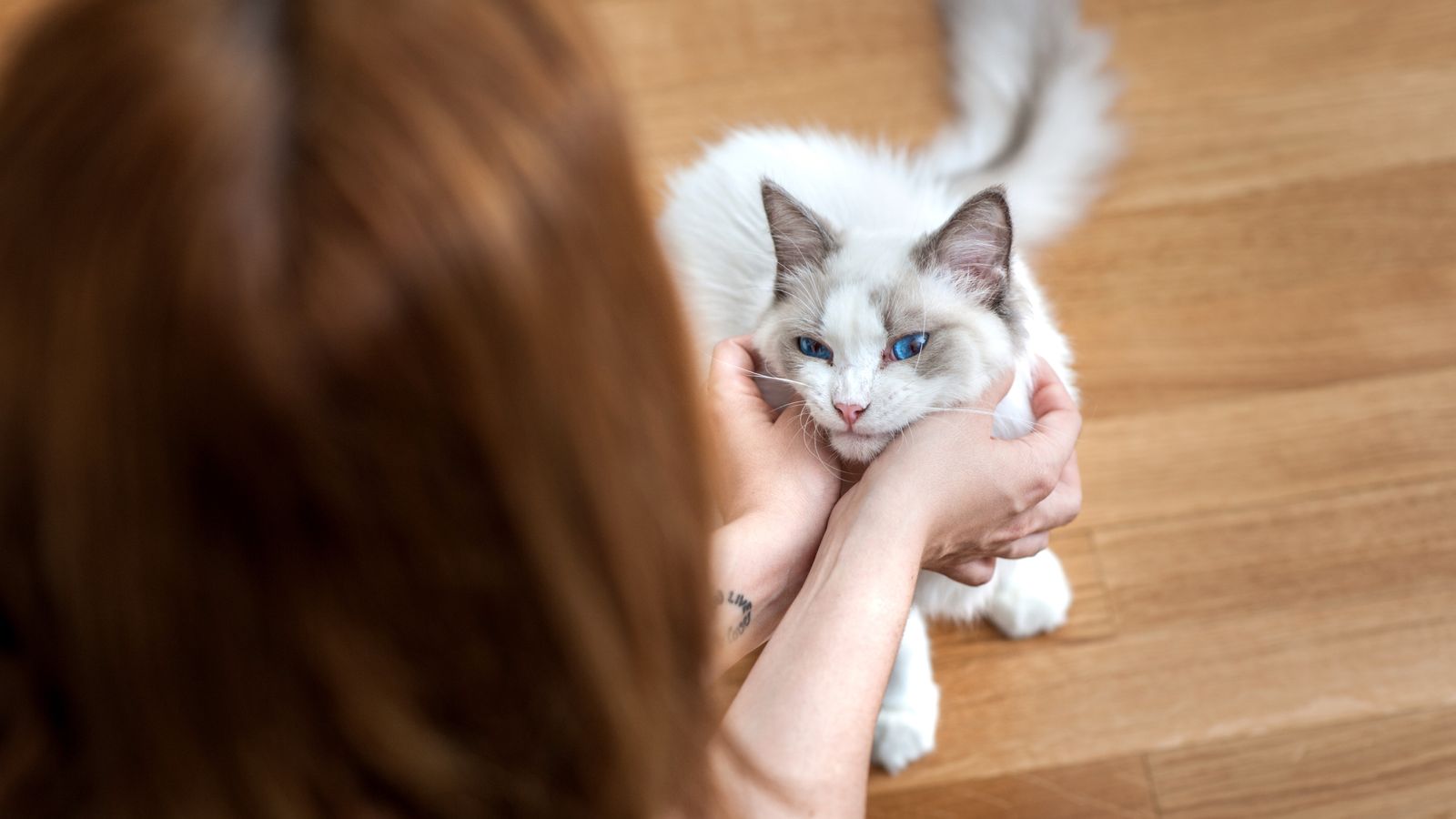Cat owners with COVID-19 have been warned against cuddling their pets after scientists found people can infect their animals.
It comes after two cases of human-to-cat transmission of coronavirus , also known as SARS-CoV-2, were identified by scientists at the University of Glasgow as part of a screening programme of the feline population in the UK.
The cats, of different breeds, were living in separate households and displayed mild to severe respiratory signs.
Latest coronavirus updates in the UK and around the world
Researchers believe both pets were infected by their owners, who had COVID-19 symptoms before the cats became unwell.
Pet owners who have coronavirus or display symptoms are now being advised by experts to avoid close contact with their cats until they have fully recovered.
Daniella Dos Santos, senior vice president at the British Veterinary Association, told The Daily Telegraph: “There has been a very small number of cases of the virus that causes COVID-19 identified in domestic animals worldwide and it appears likely that the transmission was from infected humans to animals.
“Our advice to pet owners who have COVID-19 or who are self-isolating with symptoms remains to restrict contact with their pets as a precautionary measure and to practise good hygiene, including regular handwashing.
“If your pet requires care, wash your hands before and after any interaction with them and wear a face mask if possible.
“If your pet shows any symptoms which you suspect may be caused by the virus that causes COVID-19 in humans, please do not take it to the vet but call the practice for advice first and alert them to the household’s status.”
The scientific study said there is currently no evidence of cat-to-human transmission, or that domestic animals play any role in the spread of human infections.
But the researchers said pets could potentially act as a “viral reservoir” allowing continued transmission, and said it is important to improve understanding of whether they can play a role in infection.
Professor Margaret Hosie, from the University of Glasgow Centre for Virus Research who led the research said: “Currently, animal-to-human transmission represents a relatively low risk to public health in areas where human-to-human transmission remains high.
“However as human cases decrease, the prospect of transmission among animals becomes increasingly important as a potential source of SARS-CoV-2 reintroduction to humans.
“It is therefore important to improve our understanding of whether exposed animals could play any role in transmission.”
The first case was a four-month-old female Ragdoll kitten from a household in which the owner developed coronavirus-like symptoms at the end of March 2020, although they were not tested.
The kitten was taken to a vet with breathing difficulties in April 2020 but its condition deteriorated and it later had to be put down.
A post-mortem found viral pneumonia and SARS-CoV-2 in its lungs.
Subscribe to the Daily podcast on Apple Podcasts, Google Podcasts, Spotify, Spreaker
The second cat was a six-year-old female Siamese from a household where one owner tested positive for COVID-19.
The cat was taken to the vet with nasal discharge and conjunctivitis, but its symptoms remained mild and the cat later recovered.
COVID-19 infection was subsequently confirmed from swabs.
Scientists believe the two cases are likely to be an underestimate of instances of human-to-animal transmission, as animal testing is limited.
A number of cats with COVID-19 have been reported around the world, which are presumed to have been infected by their owners.






















